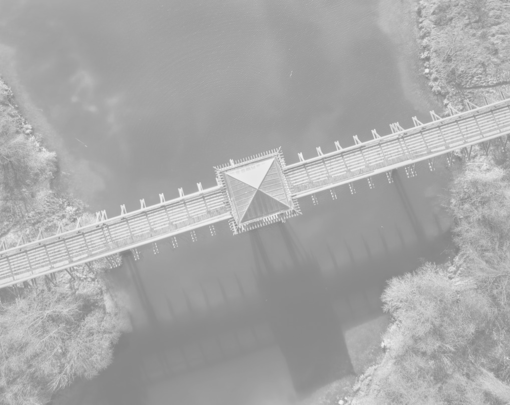Executive Summary
In January 2020, Common Wealth and The Democracy Collaborative began a year-long project that explored how extending the models and approaches of democratic public ownership to the new frontiers of the 21st-century economy could help address the deep economic, social, and environmental challenges facing the US and UK. Over the course of the year-long project, the world was changed utterly. COVID-19, an epochal event, has made the case for reimagining the ownership and governance of our economies on both sides of the Atlantic more urgent than ever. Indeed, to meet the needs of the moment, address the inequalities the crisis has exposed and worsened, and prepare us to meet the systemic environmental and social crises ahead, an agenda to extend democratic public ownership is essential.
By almost any measure, we are at a critical juncture. The pandemic has underscored both the need and possibility of deep, transformative change; and the many compounding dangers ahead. Stemming in part from capitalism’s damaging entanglement with the Earth’s natural systems, the pandemic has hit societies across the world with devastating effect. With state capacity hollowed out after decades of austerity, outsourcing, and privatization, and labor markets shaped by insecurity and power imbalances, COVID-19 metastasized long-standing racial and economic inequalities and unequal outcomes, both within the UK and US, and globally. The virus may not discriminate, but our societies have been proven to, both structurally and systematically.
The crisis has also accelerated the signature note of contemporary Anglo-American capitalism: the politically mediated upward redistribution of wealth[1]. With major corporations and financial markets stabilized by an extraordinary injection of liquidity from the world’s central banks and unprecedented fiscal support, often with few to no strings attached, and with asset prices rising as a result, coronavirus has—yet again— underscored the co-dependency of the private and public sectors and the extent to which public policy prioritizes and promotes the interests of wealthy asset-holders over ordinary workers and hard-pressed communities.
Yet there are resources of hope to draw upon as we embark on the hard road to recovery. The crisis has exposed the hollowness of the tired, ideological binary of private efficiency against public wastefulness. It has also highlighted the extraordinary scale of resources the public can mobilize and put to powerful effect, as the state has roared back into history as a vital economic actor. In doing so, the pandemic has underscored the fact that the economic is not separate from the political. Our economies are not fixed, ‘natural’ institutions, but complex socially constructed institutional ecologies that are profoundly shaped by political action; we can and must reimagine them. And while the pandemic has sharpened an underlying crisis of care, it has also underscored how the work of producing and sustaining life is foundational to all economic activity. There is a deep and widely held desire to rebuild an economy centered on new logics and values: putting the meeting of social and environmental needs at the heart of economies that are democratic, just and sustainable by design.
Why ownership matters
As we described in the project’s launch essay, these many entwined crises share a common root in the undemocratic concentration of power in our economies, which hard-wires unequal and extractive outcomes into the fabric of our societies and relationships. This concentration is in large part the product of a particular ownership model that came to dominate during the neoliberal era: the large, for-profit corporation, controlled by and for a nexus of executive management, the asset management industry, and wealthy shareholders—which operates in a deliberately shrinking oligopoly of companies on the one hand, and concentrated shareholders, on the other.
The problems that this model of ownership generates are varied and well-documented: enshrining shareholder value above all other considerations, prioritizing disgorging cash to investors and executives over increasing business investment or rising real wages; concentrating decision-making power among senior management and institutional investors to the exclusion of other key stakeholders; reducing the power of labor through offshoring, internal relocation, and hostility to unions; externalizing social and environmental costs; transferring property from the public and the commons to private hands; eroding local economies and small businesses; using market and political power to block competition, dismantle regulations, and drive up inequality; exploiting offshore tax havens and other tax avoidance mechanisms; and establishing tax and incentive structures that promote financial speculation over productive investment. Moreover, these problems have only been sharpened by events of the past year, from the COVID-19 pandemic to the uprisings against white supremacy and police brutality, to the ill-fated attempt by far-right networks and politicians to violently contest and alter the US election results.
Timid tweaks to this model will not alter structural problems and their effects. We must comprehensively break from this interconnected system of large corporations, wealthy investors, and authoritarian employment relationships that is focused on securing profit and accumulation for external investors and senior management, and instead extend democratic governance into all aspects of economic life. In place of extraction, we need to mainstream generative forms of enterprise: purposeful business serving social and environmental needs, providing decent, rewarding forms of work, and building sustainable, equitably shared wealth.
Fundamental to this systemic change must be a deep institutional turn in ownership and control to democratize economic and political rights within the economy. This is because patterns of ownership are at the heart of every political-economic system. Ownership is key to determining how power, agency, and wealth are distributed in our communities and underpins all other aspects of our lives. The centrality of ownership was acutely understood by the architects of the neoliberal project, which entailed a massive global effort to shift ownership from public to private hands and to insulate market relations from democratic reordering.
To secure a strong and fair recovery, we, therefore, need to move beyond a narrow monoculture of private ownership to scale a pluralistic ecosystem of ownership models across the full spectrum of assets, resources, enterprises, and services that, collectively, transfer wealth and power from the hands of the few to the many. But broadening ownership is not enough; to address the feelings of disempowerment many feel, we need to democratize economic power. That means transforming the internal structure of institutions to give people and communities real, genuine agency and control over the critical decisions that impact their lives.
Conclusion
Politics precedes policy and form follows function. By presenting the goals, principles, and proposals of a new democratic public ownership agenda for the 21st century, we hope we have contributed new ideas and new energy to the critical process of collectively reimagining how our economies should be owned and controlled for what new purposes. But for now, the technical details are secondary. What matters is how this agenda can become the new common sense: how it can answer the real and pressing material needs of people; which coalitions of economic interest and social energy can the 21st-century public ownership agenda draw together; how the complex interplay of ownership forms can reinforce and complement rather than erode and block each other. With these questions answered, we open up the possibility for an ambitious, transformative policy agenda to take root.
What is clear is a politics of timidity will not address the enormous challenges we’re confronted with, nor be sufficient to support a compelling, majoritarian political project. Instead, challenging corporate power and restoring agency and dignity to workers and communities will require the confident use of tools and cultures long neutered: collective action, ambitious public investment, organized labor, democratic planning and democratized workplaces, the deliberate scaling of a pluralistic landscape of common ownership, the commoning of resources, and the extension of the public realm and shared ownership in place of private consumption. Democratic public ownership must be a critical anchor in this new economy. It is time we owned the future.






